Vintage Treasures: Modern Classic Short Novels of Science Fiction edited by Gardner Dozois
Modern Classic Short Novels of Science Fiction (St. Martin’s Griffin, 1994). Cover by Kim Poor
When I talked about Gardner Dozois’ 1997 anthology Modern Classics of Fantasy a few years ago, I called it “a book that makes you yearn to be stranded on a desert island” (or anywhere you could read interrupted for a few days, really.) That description applies equally well to his 1994 volume Modern Classic Short Novels of Science Fiction, a book that over the last few decades has become one of my favorite fall reads. It’s packed with a surprising assortment of 13 novellas from some of the greatest SF writers of the 20th Century.
I say surprising because the first time I opened it, I was a bit taken aback at Dozois’ selections. There’s no sign of Asimov, Heinlein, Clarke, or any of the usual suspects you might expect — no “Who Goes There?” by John W. Campbell, Jr., nor Kornbluth’s “The Marching Morons,” or Kuttner and Moore’s “Vintage Season,” or Theodore Sturgeon’s “Baby Is Three” for that matter. No “Rogue Moon” by Algis Budrys, or “The Witches of Karres” by James H. Schmitz, or “The Big Front Yard” by Clifford D. Simak. Not even H.G. Well’s The Time Machine.
In fact, there’s not a single story overlap between this book and The Science Fiction Hall of Fame, Volume II, which for many of us old timers is the gold standard of classic SF novella anthologies.
Avon paperback editions of The Science Fiction Hall of Fame, Volumes I, IIA and IIB.
Edited by Robert Silverberg and Ben Bova (1971 and 1974)
Instead Modern Classic Short Novels of Science Fiction contains a more eclectic and personal selection of long-form SF by Jack Vance, Poul Anderson, Samuel R. Delany, Brian W. Aldiss, Frederik Pohl, Gene Wolfe, Joanna Russ, Lucius Shepard, Nancy Kress, and others. Gardner explains his selection process in his Preface.
These are the stories that spoke to me, as a reader, that touched me, that moved me, on a purely instinctive and emotional level — they are the stories that, when I read them again, sometimes after a lapse of many years, could still make me say “Wow!,” could make my pulse race faster, or the sweat start on my forehead, or totally absorb me, or scare me, or touch my heart. Stories that I enjoyed — uncritically, instinctively — as a reader. Stories that I would want to read again.
So, as I warned you, it all comes down to one person’s taste, my own. These are the novellas that I liked best… although that doesn’t look as good on the cover as the firmly authoritative Modern Classic Short Novels of Science Fiction…
I also hope that, at the very least, this book serves to demonstrate some of the amazing range, diversity, and vitality of modern science fiction, as well as the durability of the best of its stories — the oldest story here will be thirty-six years old by the time you read these words, and it is still as fresh and vivid as it was on the day it was written. I like to think that thirty-six years from now, long after I’m dead, these stories will prove to be still as timeless as they are today, and it is my fond hope that this book will continue to provide enjoyment for generations of reader yet to come, far into the unknown and unknowable future.
Twenty-seven years after the book was published — and a mere three years after Gardner’s untimely death, at the age of 70 — I think time has shown that his taste served him very well indeed. Modern Classic Short Novels of Science Fiction has held up at least as well as Gardner hoped, and remains a wonderful introduction to SF novellas even for todays’ readers.
Kim Poor’s wraparound cover for the St. Martin’s hardcover edition of Modern Classic Short Novels of Science Fiction
Here’s the complete Table of Contents. Virtually every story within was in the running for at least one major award by the SF community; I’ve noted the most significant wins and nominations.
Preface by Gardner Dozois
“The Miracle Workers” by Jack Vance (Astounding Science Fiction, July 1958) — Hugo nominee
“The Longest Voyage” by Poul Anderson (Analog Science Fact & Fiction, December 1960) — Hugo winner
“On the Storm Planet” by Cordwainer Smith (Galaxy Magazine, February 1965) — Nebula nominee
“The Star Pit” by Samuel R. Delany (Worlds of Tomorrow, February 1967) — Hugo nominee
“Total Environment” by Brian W. Aldiss (Galaxy Magazine, February 1968) — Hugo and Nebula nominee
“The Merchants of Venus” by Frederik Pohl (Worlds of If, July-August 1972)
“The Death of Doctor Island” by Gene Wolfe (Universe 3. 1973) — Hugo nominee, Locus Award winner, Nebula Award winner
“Where Late the Sweet Birds Sang” by Kate Wilhelm (Orbit 15, 1974)
“Souls” by Joanna Russ (The Magazine of Fantasy & Science Fiction, January 1982) — Nebula nominee, Locus Award winner, Hugo Award winner
“A Traveler’s Tale” by Lucius Shepard (Isaac Asimov’s Science Fiction Magazine, July 1984) — Locus and Nebula nominee
“Sailing to Byzantium” by Robert Silverberg (Isaac Asimov’s Science Fiction Magazine, February 1985) — Hugo and Locus nominee, Nebula Award winner
“Mr. Boy” by James Patrick Kelly (Isaac Asimov’s Science Fiction Magazine, June 1990) — Locus and Nebula nominee
“And Wild for to Hold” by Nancy Kress (Isaac Asimov’s Science Fiction Magazine, July 1991) — Hugo and Locus nominee
Here’s a few of the magazines these stories originally appeared in.
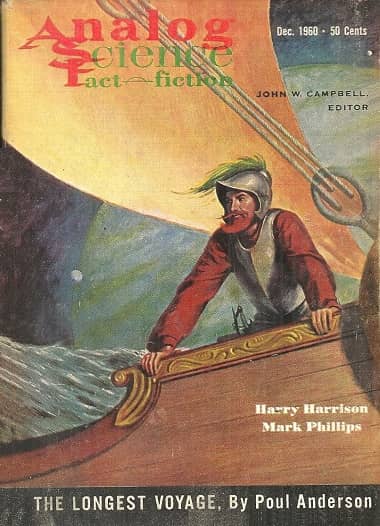 |
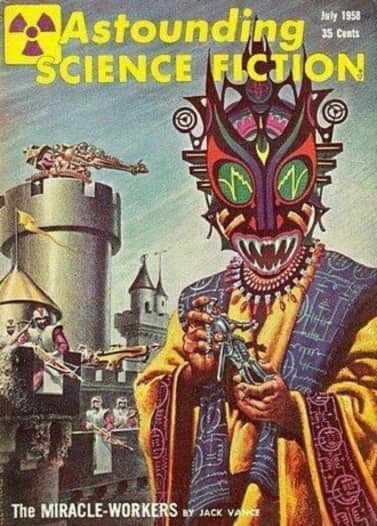 |
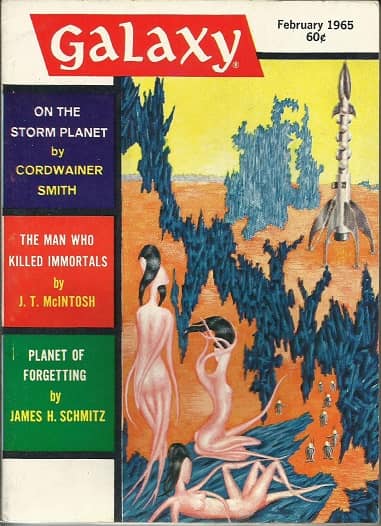 |
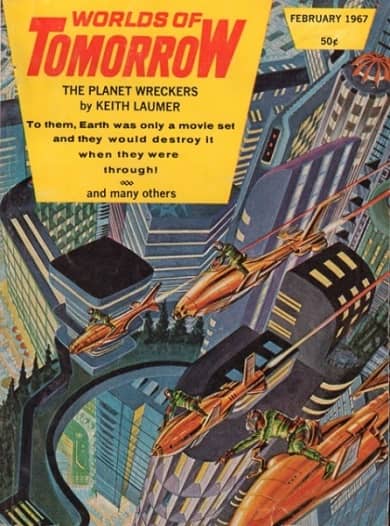 |
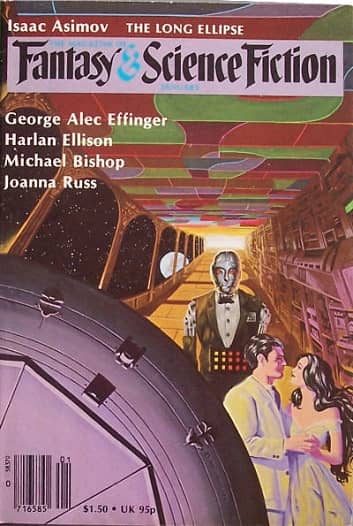 |
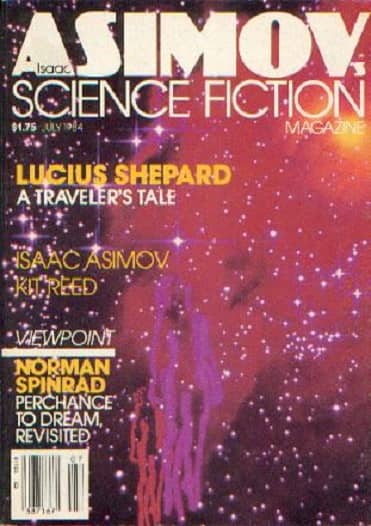 |
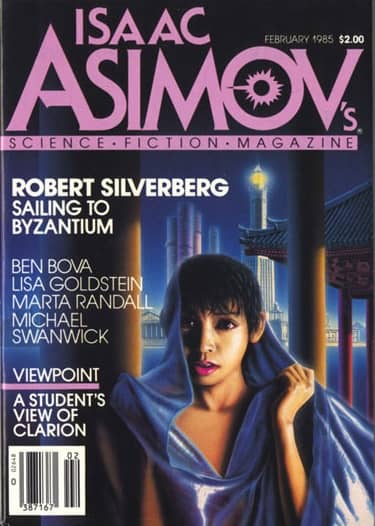 |
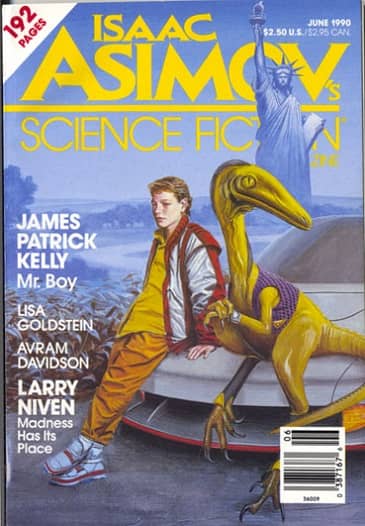 |
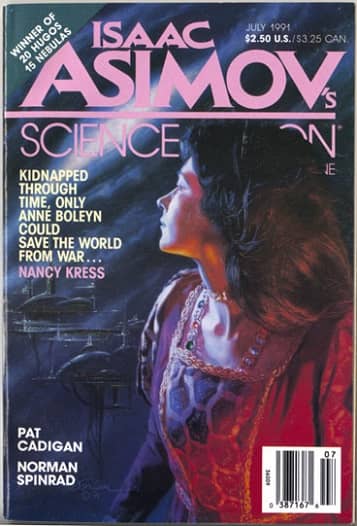 |
Some of the magazines that originally published the novellas in Modern Classic Short Novels of Science Fiction (click for bigger versions)
Modern Classics of Fantasy is part of a series of anthologies edited by Gardner for St. Martin’s Press that also includes:
Modern Classics of Science Fiction (1992; original title The Legend Book of Science Fiction)
Modern Classic Short Novels of Science Fiction (1994; also known as The Mammoth Book of Contemporary SF Masters)
Modern Classics of Fantasy (1997)
Modern Classic Short Novels of Science Fiction was re-issued in trade paperback the same year it came out in hardcover. The first British edition was issued in hardcover by Robinson in July 1994, under the title The Mammoth Book of Contemporary SF Masters.
The Mammoth Book of Contemporary Science Fiction (Robinson 1994)
Note: the book is to be confused with The Mammoth Book of the Best Short SF Novels (2009), also edited by Dozois, which was a British reprint of The Best of the Best Volume 2: 20 Years of the Best Short Science Fiction Novels.
The Mammoth Book of the Best Short SF Novels (Robinson, 2009)
Modern Classic Short Novels of Science Fiction was published by St. Martin’s Press in February 1994. It is 657 pages, priced at $27.95 in hardcover, and $15.95 in trade paperback. An ebook version was released by St. Martin’s Press in 2014.
See all our recent Vintage Treasures here.
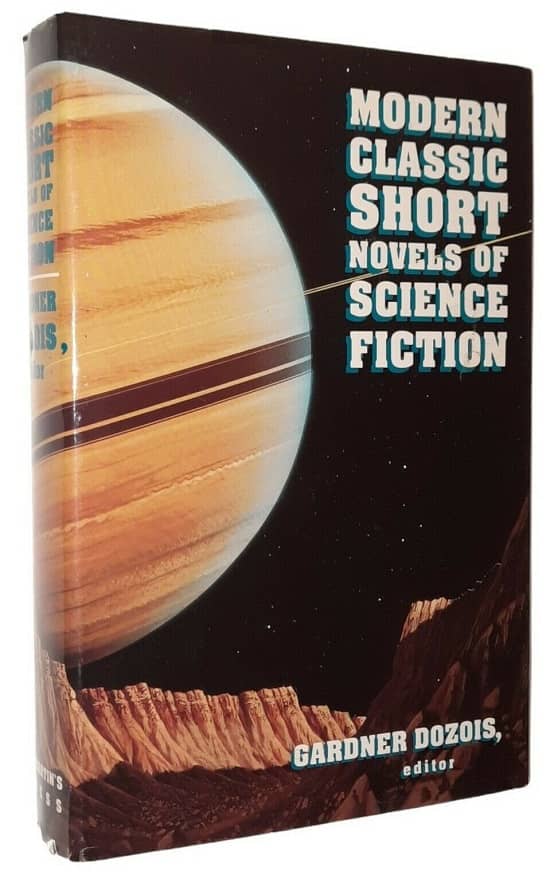
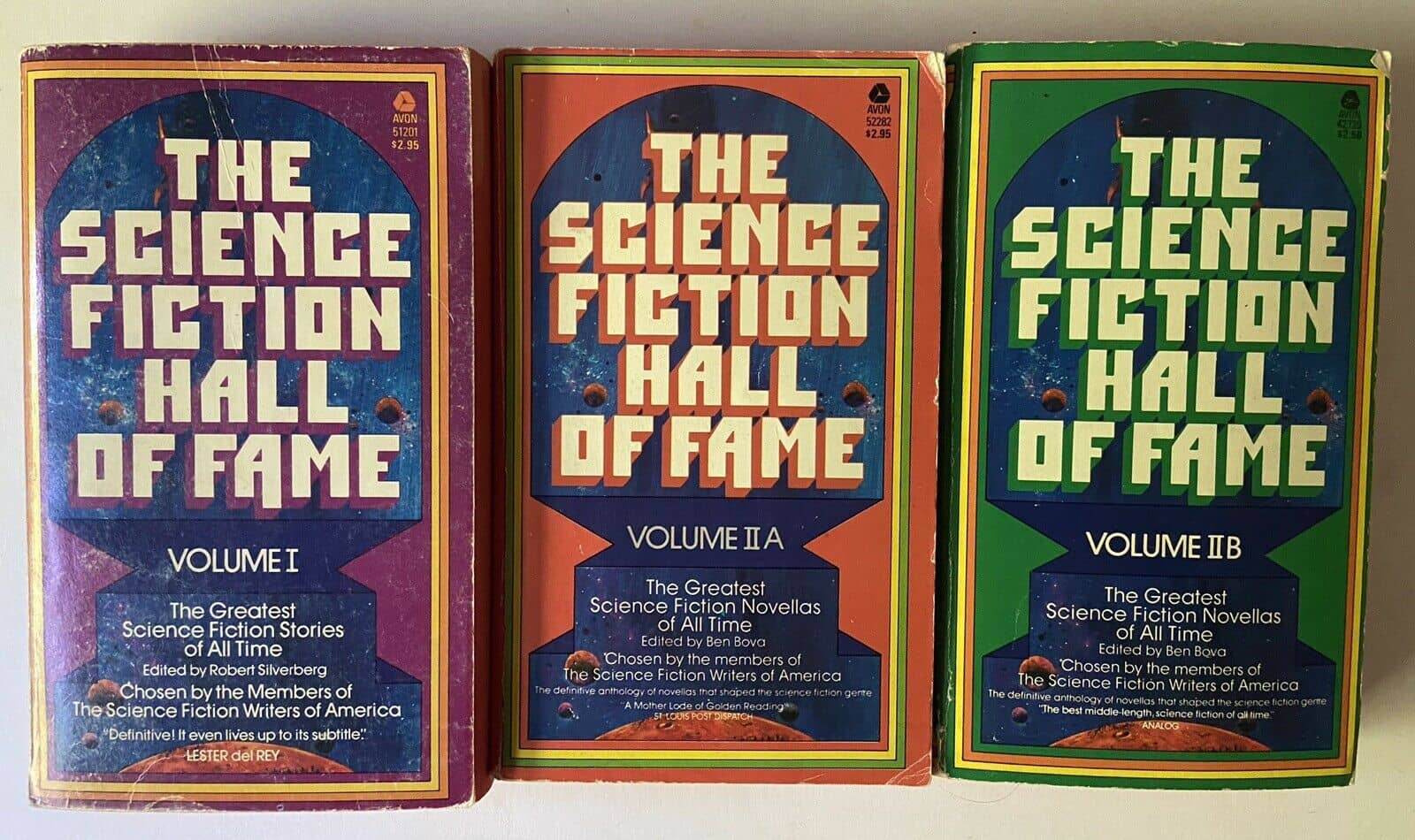
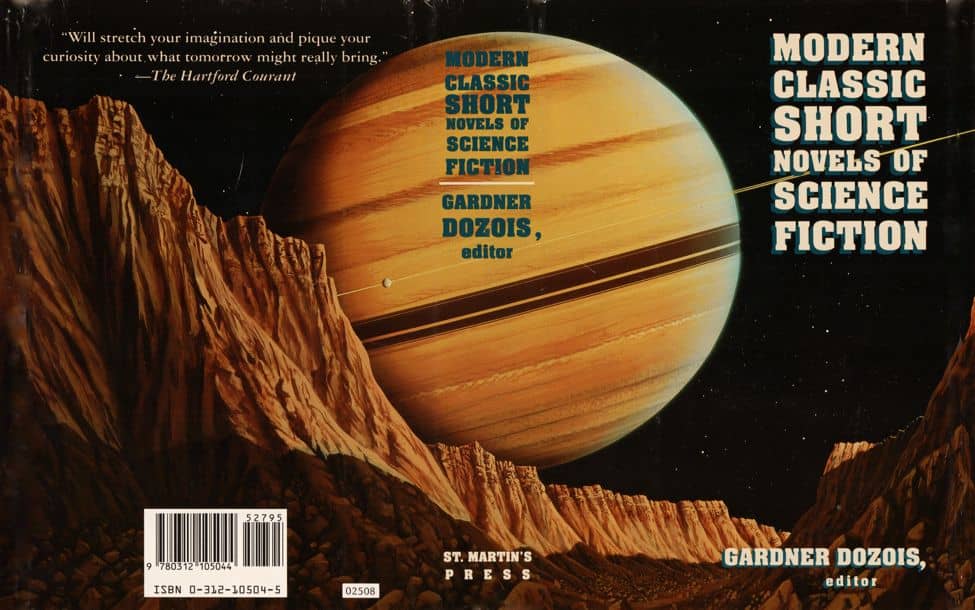
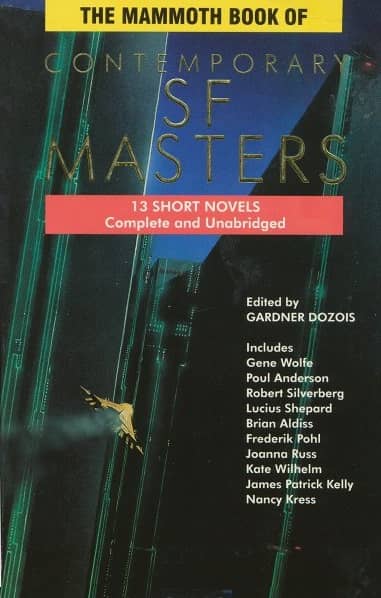
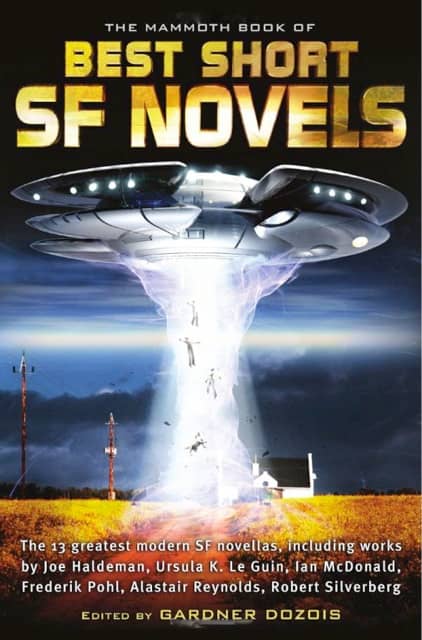
I remember being tempted to pick this up but never getting around to it. By chance I’ve read 7 of the 13 (the ones by Vance, Anderson, Delany, Wolfe, Russ, Shepard, and Silverberg) and liked all of them, so I bet I’d enjoy the rest of Dozois’ choices. Glad you also brought up the Science Fiction Hall of Fame — I’d meant to read those ages ago but they fell off my radar. (And then there’s all the more recent stuff I need to catch up with!)
The tension between reading new and old is constant for me. There are so many great novels and anthologies from my youth I want to dig into so I can write about them here…. but then, I’m neglecting all the intriguing material showing up on shelves every month, much of it just as unfairly neglected as that Terry Carr anthology I want to discuss.
It’s a good problem to have, I suppose. Thought it doesn’t always feel like it.
By an odd coincidence, I pulled my four Avon Hall of Fame Volumes (including the 1982 volume 3) off the shelf the other day, intending to read Forster’s “The Machine Stops” and maybe a few others along the way. Being one of those “old timers” myself, collectively the SFHF is still the Anthology of Anthologies for me. Tastes change, literary styles swing like a pendulum, but excellence is still excellence, and I think the old selections by the SFWA members have stood the test of time pretty well – as have those of Dozois, unsurprisingly. In a field as wide and deep as sf, excellence can’t be exhausted; I think that’s one reason why we love anthologies of all eras and kinds.
I’ve been listening to the audio version of The Science Fiction Hall of Fame, Volume Two on my Audible app, my first serious read of this book in decades, and truth to tell I found my mind wandering. I was stunned to find how slow moving “Who Goes There?” actually is — it’s pages and pages (and pages!) of a science briefing that all occurs in the same room. Even Poul Anderson’s “Call Me Joe” had surprisingly little moments of real action.
I’m embarrassed to admit that I even gave up on Asimov’s “The Martian Way” halfway though. Same problem. I think these stories used to hold me in thrall half because of the wonder and discovery of their futuristic settings. I’m a little more immune to that this days.
Of course, Simak’s “The Big Front Yard” still enchanted me, and Vance’s “The Moon Moth” — which wasn’t my favorite all those years ago — absolutely blew me away this time.
The SF HALL OF FAME is a monumental anthology. But I think I’m with Dozois on this one. I wonder if modern SF might prove to have more staying power in the long run.
Point taken. It’s sometimes difficult to know what will age well, and the long run is a long, long time. When we come back to stories that once delighted us only to find disappointment, we’re the ones who have changed, of course – the stories have remained the same.
I do think that pushing to be on the “cutting edge” (not something that really concerned Dozois’s writers) often doesn’t make for as much longevity as is commonly assumed. I haven’t dipped into Harlan Ellison’s Dangerous Visions anthologies in a long while, but I suspect that (along with much terrific work) there’s a lot of stuff that hasn’t aged all that well; the strain sometimes showed even when those books were new. What the hell – if that’s what you’re worried about, you’ll probably never write a thing.
I agree completely — William Gibson’s cyberpunk novels were considering as cutting edge as you could get in the 80s. But while I still find them readable, I don’t think they’ve aged well at all. I wonder if readers today find them interesting at all, or just quaint?
This is an anthology that fills the “I have most elsewhere, but here they are together” niche that’s just deadly to the budget. I’ve just been telling myself I should devote November to reading short stories and novellas, which these mostly are, and this clinches it.
The whole business is complicated by my reading science fiction, mystery, and fantasy. As you say, John, a good problem to have…if there’s time.
I used to turn my nose up at anthologies if I already had the original stories in my magazine collection.
But these days it’s pretty much impossible for me to find specific issues from the 70s and 80s… those mags have been boxed away for decades. If I want to read my favorite stories from that era, this is the only way.
And I’m someone who has the magazines! Younger readers don’t, of course. For them, especially, books like this are invaluable.
i love this post. i love that you include the magazines, and i enjoy seeing these old collections that i might actually find on ABE or somewhere. i miss living in a state that has a Flea Market, i bet i could have found a ton of old books at the several that were in floida, though i am more happy i am not in that state anymore. hahaha. being unemployed for a couple years it’s almost as if i am on an island with nothing to do but read and i STILL dont get to read everything i want, though that is definitely a “first world problem” or whatever that saying is. i really need to read more old stuff, i find i like it much better then the anthologies of today except when i ee certain authors names.
Dante — glad you enjoyed the magazine covers! It took work to format them all so they’d fit, but it seemed appropriate to the article.
I know what you mean about “old stuff” anthologies. The genre today is more vibrant and exciting than ever… but I miss paperback anthologies very much. Anthologies are still published of course, but rarely in mass market format anymore. We didn’t know how good we had it when they were new ones being published every month. 🙂
Another ‘Vintage Treasures’ post, another order placed at Alibris.
Like others here, I often find it irresistible to pick up an appealing-looking anthology even when I already own many of the stories in their original magazine form. I have an *almost* complete collection of Asimovs (with address labels tracing my place of residence over decades) but even if they were all to be freed from their slumber in the attic, it’s no easy task to find a specific story in all those issues even when I have an idea where to start looking. Online shopping to the rescue.
That’s exactly my dilemma. I know I have the stories…. but finding them in the basement is too much of an undertaking.
Glad you bought the book. Let us know what you think!
Fun fact: The Mammoth Book of Best Short SF Novels contains three stories more than the US equivalent edition! Apparently the UK edition came out around the time of Gardner’s 23rd annual, and the UK publisher insisted that the three most recent years should also be represented, whereas the US edition represented the first 20 years of the annual series only.
Glad to seem Jim Kelly in that mix.